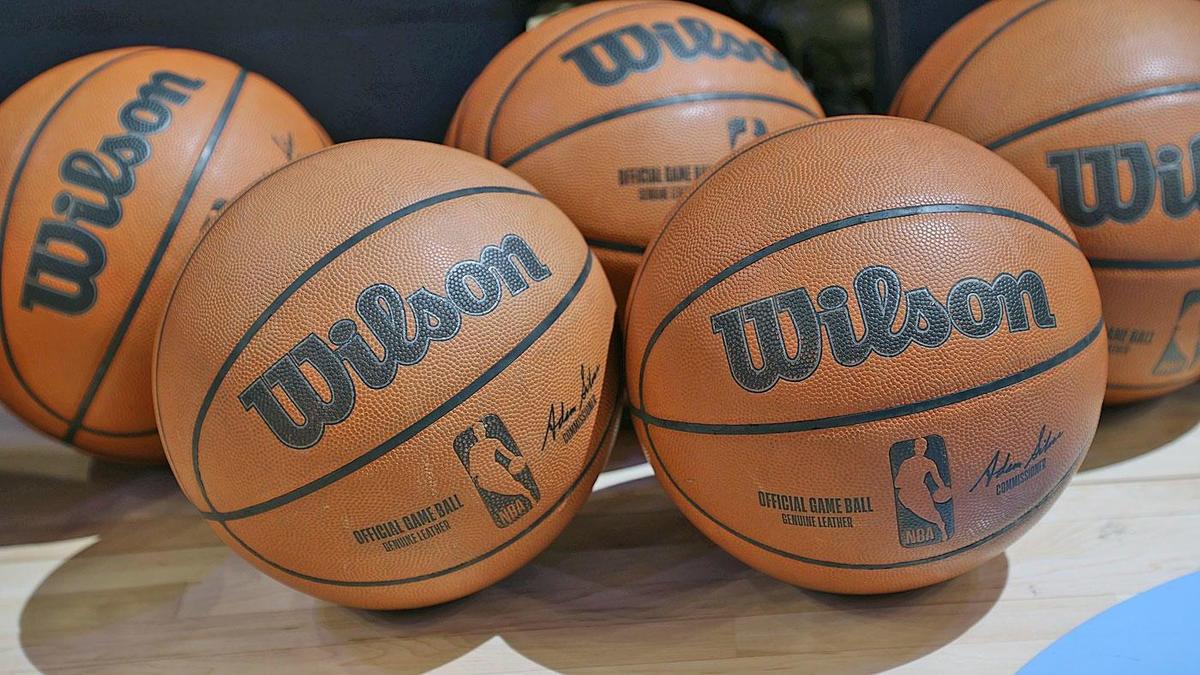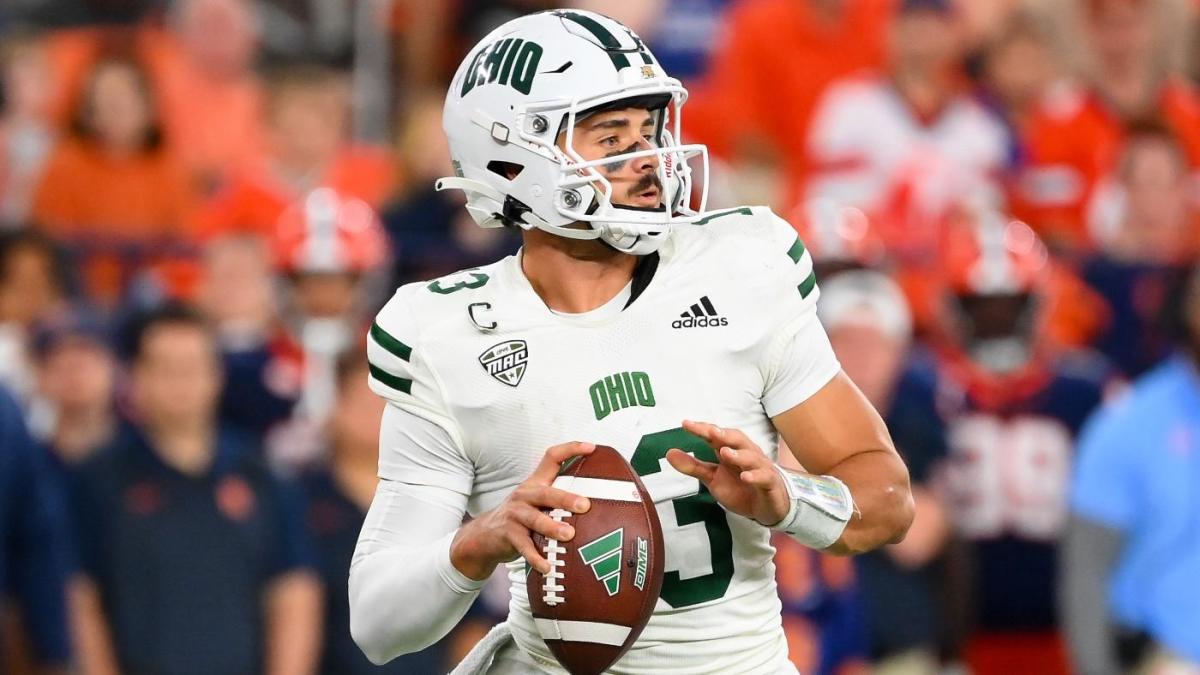There are many ways to assess and analyze the possibilities for, and trajectory of, Victor Wembanyama’s burgeoning career. But the most interesting, and perhaps most telling, might be through the lens of the all-time great he plays against Wednesday night: LeBron James.
And not just because the 20-year-old’s massive, eye-popping talent could maybe — stress the maybe here, please — someday put him on track to chase down LeBron’s incredible legacy.
There parallels between Wemby and LeBron that exist in part through their connection as those rare talents who have been hyped as future all-time greats before ever stepping foot on an NBA floor — and then, early on, showcased all the fuss might be about something after all.
LeBron, of course, has long since lived up to the mantra of “The Chosen One” that Sports Illustrated anointed him with when he was still in high school. Wemby has so far to go.
But the early signs are promising — and similar.
They are vastly different players with vastly different skill sets, yes. LeBron is a 6-foot-9 hulk of a man — all muscle and athleticism, seemingly an Avenger who decided to give up his superhero days to win titles and set NBA records.
Wemby is thin, at least 7-foot-3, with an 8-foot wingspan, and he will shoot from anywhere. The Spurs franchise cornerstone has already cemented himself as one of the league’s elite defenders.
But it’s the rarity of their physical gifts, each unicorns in their own way, that has set the stage for the massive, nearly unfair expectations that have been piled upon them. Such hope and scrutiny early in careers tends, inevitably, to shift to the let’s-tear-down-that-kid-we-said-would-be-the-greatest reaction that always, eventually, follows.
Some of that popped up earlier this season for Wemby, when his early shooting woes — and they were woeful — led some smart NBA people to ponder the possibility, great though he was, that he might not be quite the Next Great Thing that had been promised.
Only a couple of weeks ago, this talk bubbled up as, 10 games into his second season, Wemby’s offensive struggles raised eyebrows.
The talk went something like this: He can’t shoot. You can’t build an offense around this guy. He’s a defensive wonder, sure but he’s not Chet Holmgren on offense — or, for that matter maybe at all.
All the fuss had a foundation. At that point in the season his offensive numbers looked like this:
- 18.3 points per game
- 42.5% shooting from the field
- 28.2% shooting from the 3-point line
- 3.7 turnovers per game
Not great, no, not at all. The next LeBron he did not seem to be. But you know whose numbers they resembled? Those of LeBron James during his rookie year:
- 20.9 points per game
- 41.7% shooting from the field
- 29% shooting from the 3-point line
- 3.5 turnovers per game
LeBron’s rookie year is not the same thing as Wemby’s first 10 games of his second season, but the point holds: People are quick to worry about phenoms because, no matter how promising they may be, they do not burst into the NBA as fully formed Michael Jordans or Kareem Abdul-Jabbars.
Even the greatest of things take time. Despite our culture of impatience and our eagerness to disbelieve what we’d earlier been sure was destined.
Wemby also did the most LeBron thing in the face of those worries about his offensive struggles, and all they might portend about the limitations of assuming titles, records and accolades would follow him forward: He unleashed so much offensive excellence that it might move doubters — guilty here, on LeBron, in the past — to be leery of future levels of disbelief.
First, Wemby dropped a season-high 34 points in a win against the Kings. He followed that up with a 50-point game — 50! — while going 8-of-16 from 3. That’s a lot of 3-pointers for a guy who “can’t shoot.”
LeBron also had his first 50-point game in his second season in the league, though his didn’t happen until March.
There’s another way in which the start to Wemby’s career looks like LeBron’s, and this one is much more important. It’s about winning.
Wemby is way ahead of schedule in carrying a team so that it surprisingly racks up Ws, especially during a season when most thought the Spurs, who are currently 10-8, would be afterthoughts somewhere near the bottom of the Western Conference.
This, too, conjures LeBron vibes.
That’s because LeBron first had a winning season in his second year in Cleveland, when he led his team to a 42-40 record.
After Tuesday’s win against the Jazz (in which Wemby scored 34 points), the Spurs are on pace for 46 wins.
There are other intangibles that both seem to share. LeBron is mercilessly competitive and has always been focused relentlessly on basketball. Wemby seems to have a similar zeal, perhaps best showcased when he noted some players don’t work as hard as he’d thought before entering the league — an observation as much about his own standards as those of his competitors.
Both are physical specimens, brutal to try and defend. That fact became even more true as LeBron’s skillset deepened and his execution of his gifts sharpened — just as Wemby’s seem poised to do as he develops.
A 50-burger in his second season. An imposing, even overwhelming, physical advantage that seems destined to be aided by a burgeoning skill set. Early signs his mere presence can make a bad team passable — or better. And still so much time to evolve, develop, and learn as he strives to live up to the once-in-a-generation-hype others foisted upon him.
That’s the early story of Victory Wembanyama. But it’s also the first chapter of the guy he’s playing tonight, long after LeBron James proved he was everything advertised, and more.
How do you know Wemby may just become everything we hoped he might?
Look to him and and his marvels, sure. But also remember LeBron’s example from when a phenom showed the clear signs of what was on the way — and see, in that history lesson, what may again be unfolding before us this time around.






